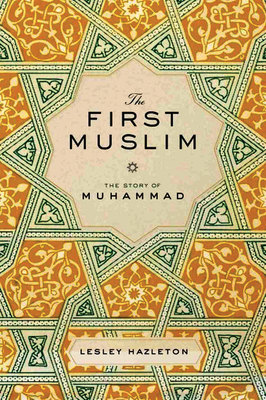By Jenny Carter
The First Muslim, by Lesley Hazleton
AN impeccably researched and very readable account of one of the most important historical figures, whose ideas and their various interpretations are affecting world events in our time.
Muhammad was born an orphan, and to be born without a father was to be without an inheritance. Mecca in the 6th century was not kind to orphans. The town had become wealthy and the old tribal customs which afforded some protection to widows and orphans were breaking down. He was placed as an infant with a Bedouin family, in whose care he learned to handle the tribe’s camels.
Back in Mecca for a couple of years at the age of six, the child Muhammad noted that with wealth came greed, instability and social injustice between rich and poor, and these early impressions were to influence what came later.
Back with the Bedouins, Muhammad was employed on the camel caravans where he worked his way up to become an independent agent representing the interests of others. The journeys of the caravans were fascinating. The wealthy could buy a share in them, just as people today buy into the stock market.
Muhammad was comfortably off, happily married to Khadija whose interest in the camel caravan he represented, when he was first drawn to the solitude of Mount Hira and experienced his encounters with the angel Gabriel.
Psychologists will say that vigils of solitude and fasting can lead to hallucinations. Think Moses up Mount Sinai.
Reflecting on the practices of Christianity and Judaism, Muhammad saw these as incomplete, distorted, and that God was now perfecting His previous revelations to earlier prophets, and appointing him as the prophet of new revelations. He determined to bring this new improved faith to the people, but was faced mainly with derision and rejection.
Expelled from Mecca, he retreated with a band of followers to the oasis of Medina, and from there he began a series of raids, wars and political moves compelling all unbelievers to change to the new religion, Islam. The beheadings that so shock civilized society today are reflected in the beheading of a Medina Jewish tribe who refused to convert.
The nine wives of Mohammad, whom he married after the death of his beloved Khadija, throw further light on the mores of the times and the ideas which may have later led to the custom of veiling.
This is a book which gives an illuminating insight into the life of a complex man, and is packed with customs, incidents, contradictions and questions which cannot be included in a short review such as this.
Available at the Noosa Library.









